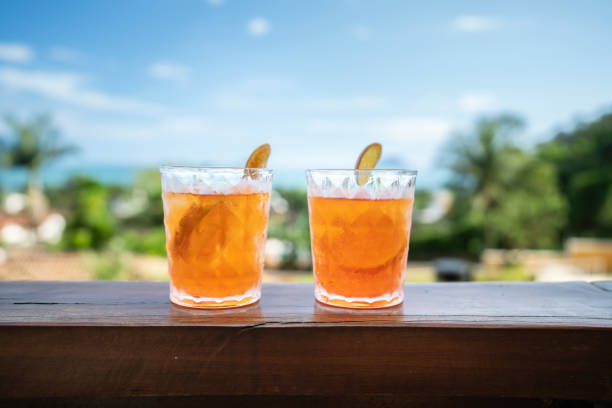Liz Sagues has launched her new book Sussex By the Glass, just in time for International Women’s Day on Monday, 8th March. Liz Sagues, who wrote A Celebration of English Wine in 2018, has now published a book that focuses on a single county and two pioneering families of winemakers: Ridgeview Wine Estate and Bolney Wine Estate. The book was released just in time for 2021. It highlighted the achievements of two talented and entrepreneurial women, Sam Linter and Tamara Roberts, who run these multi-award-winning wine businesses.
This week, I received a copy of the pre-release book, which can be ordered from Ridgeview for PS14 (including delivery) or Bolney for PS12 (including P&P). The book, like Liz’s first title, takes readers on a journey through English Wine, from the early formative days to the rise of producers such as Nyetimber. The book serves as a reminder that English Wine, while new, is not as novel as you might think. Liz points out that Bolney is celebrating its 50th anniversary next, while Ridgeview celebrated its 25th. These two wineries are credited with laying the foundations for the modern English Wine Industry.
This book is not only a collection of medals, trophies, and international wine awards. It also tells the story of two multi-generational, highly successful family businesses. Sussex By The Glass beautifully shows the beginnings, trials, and tribulations of these inspiring businesses. It was fascinating to read about Bolney’s early years (then Bookers Vineyard) and the time between the 1980s and 1990s, up until the first English red wine listed in a supermarket. Sam Linter was committed to driving quality forward. The Roberts’ pioneering approach in sparkling wine production led Tamara Roberts to leave a career in Chartered Accountancy and join the Roberts business as General Manager in 2004. Tamara Roberts is the CEO of Ridgeview and one of the leading figures in the English wine industry.
Liz explains that at a time when gender equality is a hot topic, she makes an important point about Sam Linter and Tamara Roberts’ current status in their business. “They have proven they have the ability and skills to run and grow a business.” This is a key message throughout the book and shows why prominent female figures are becoming more successful in their work.
You will have to purchase a copy of the book to find out more! What I really appreciated about the book was how it took you on a very personal journey. The book is a fascinating tale of two women who were pioneers in their respective family businesses. You can feel Liz’s connection to the story.
Liz was kind enough to answer a few of my questions about the book and her experiences as a published author.
John: As a committed commentator for the English Wine industry, what excites you most about the evolution of the sector over recent years?
Liz: “The quality, availability and variety of excellent still wine is increasing.” There is no doubt that the quality and choice of sparkling wines are excellent, but the availability of good still wine makes the UK’s overall product more appealing to consumers, both in the UK and abroad.
Your new book, ‘Sussex by the Glass,’ examines two highly successful English Wine families with a prominent female as the leader. What made you choose to concentrate on Bolney and Ridgeview winemakers?
“I wanted to be in a position to write about English wine humanely and incorporate that into a larger story. Bolney and Ridgeview, which are still unusual in the UK because they have multiple generations of winemakers, were the obvious choice due to their multi-generational nature. They also are celebrating significant anniversaries before and after the publication of my book. I wanted to include an estate that was primarily focused on still wine, as well as one that only produced sparkling wine. It is a plus that women run both estates. (I did not approach this from a feminist standpoint.) They are also good friends and neighbors, both in Sussex, where I live. This led to the regionalization of the book. It was then more manageable and specific.
How do you feel about the increasing prominence of women winemakers and vineyards in England?
“Women have better palates, as is said often…But more seriously, I think it’s wonderful to see that equality happens so naturally in the English wine industry. It doesn’t seem like a feminist issue, or the result from deliberate manipulation. I believe that businesses should be managed by those who are best qualified to do the work. Bolney, Ridgeview and other UK wine estates are run by women. (Some of these are also mentioned in Sussex By the Glass). As Sam Linter, Tamara Roberts, and the authors of this book make clear, highly capable women bring a special value to business.”
Have you faced any challenges or experiences as a woman wine critic and writer?
“None whatsoever. I have been lucky to work with colleagues who do not consider their gender when evaluating their abilities, enthusiasm, and interests. “In the same way, everyone I have dealt with in the wine industry has the same approach.”
What tips would you offer to someone who wants to start writing about wine?
“Have fun!” “Have a go!”
You cover the favorite wines of each producer from their range. What are your favorite Ridgeview and Bolney wines?
In my first book about English Wine, I never named any favorite wines. That was insensitive when trying to present a wide view of the topic. Since this book is different, I will not enforce the rule. I remember the first wines I tried from each producer and still enjoy them after many years. So, I will happily raise a Glass of Bolney Pinot noir and Ridgeview Bloomsbury to the talented people who made them.
Do you plan to publish more English Wine publications that are focused on regions or producers after ‘Sussex by the Glass?
At the moment, no. If I write another English Wine book, it will be quite different from this or its predecessor. The UK wine industry has not yet been covered in enough depth. While a regional book was successful in the context of Sussex By The Glass, it is too soon to divide UK wine production neatly into regional divisions.




